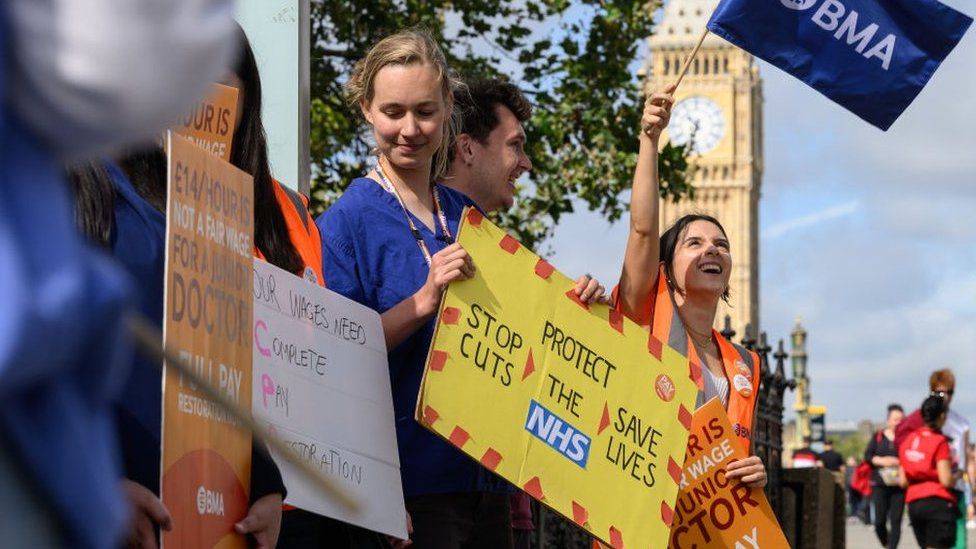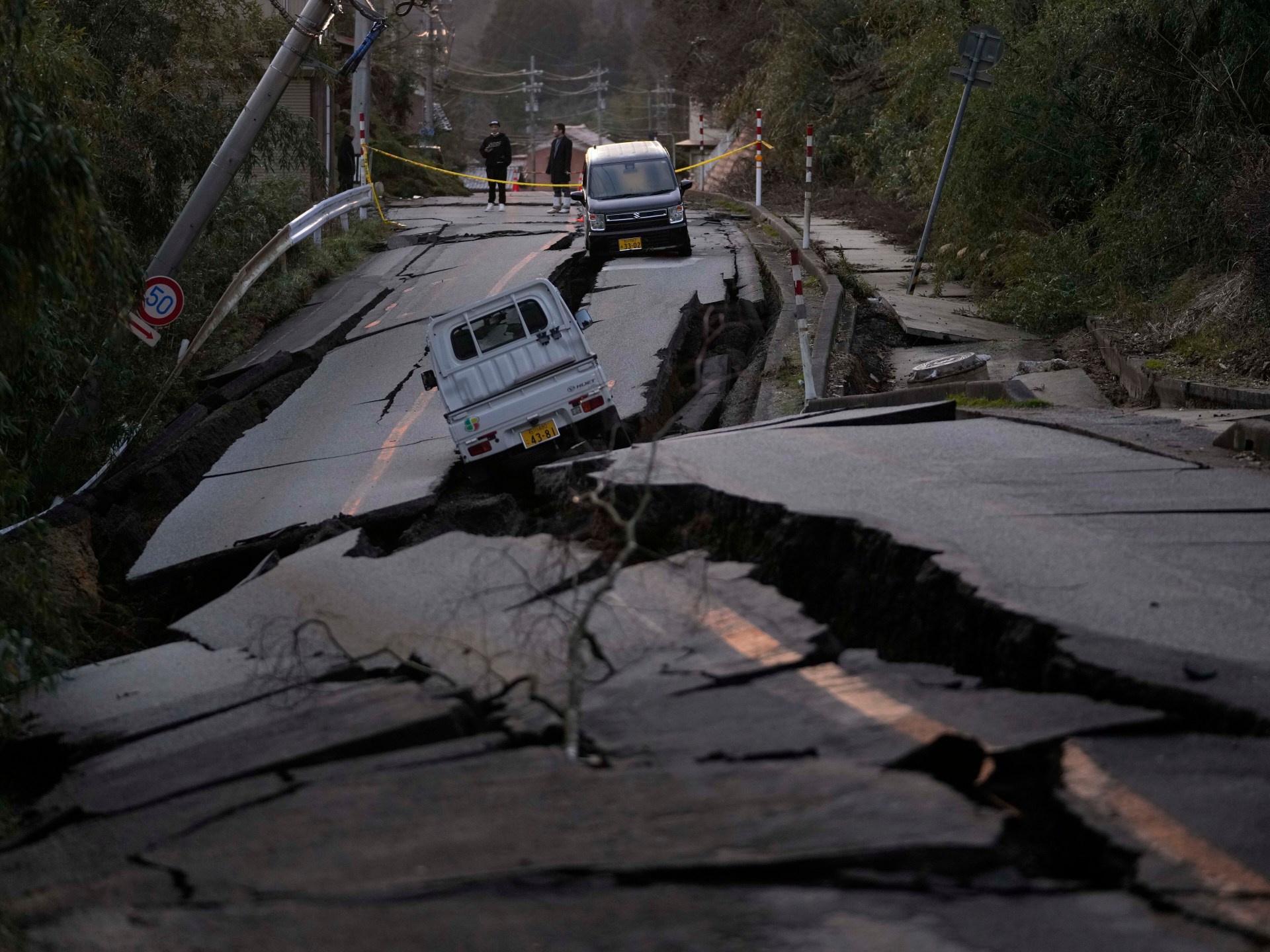 Image source, Getty Images
Image source, Getty Images
The UK economy shrank more than expected in July, driven by strike action by NHS workers and teachers, according to official figures.
Wet weather also hit the construction and retail industries, the Office for National Statistics (ONS) said, causing the economy to contract by 0.5%.
The figures were worse than analysts had predicted and continue a trend of weak economic growth in the UK.
But the ONS said the "broader picture" for the country looked "more positive".
Darren Morgan, director of economic statistics at the ONS, said that while July saw the economy shrink, output across the services, production and construction sectors was growing in the three months to July.
He said despite the UK being hit by strike action and poor weather this summer, "a busy schedule of sporting events and increased theme park visits provided a slight boost" to the economy.
Chancellor Jeremy Hunt said the latest economic figures showed "many reasons to be confident about the future" and that the UK economy was now on course to grow faster than Germany, France and Italy.
The figure produced by the ONS to show the health of the UK economy is known as gross domestic product (GDP).
GDP is a measure - or an attempt to measure - all the activity of companies, governments and individuals in a country and is watched closely by the government and businesses.
If the figure is increasing, it means the economy is growing and people are doing more work and getting a little bit richer, on average.
But if GDP is falling, then the economy is shrinking which can be bad news for businesses. If GDP falls for two quarters in a row, it is typically defined as a economic recession.
The latest figures released on Wednesday are an estimate of how the economy is doing by the ONS. It produces one of the quickest estimates of GDP of the world's major economies, about 40 days after the quarter in question. At that stage, only about 60% of the data is available, so the figure is revised when more information comes in, and can change at a later date.
The UK is currently not in recession, but there have been concerns over the economy's weak performance in recent months.
Rachel Reeves, Labour's Shadow Chancellor, said the new statistics on Wednesday marked "another dismal day for growth".
"The British economy remains hostage to the Conservatives' low growth trap that is leaving working people worse off," she said.
Paul Dales, chief UK economist at Capital Economics, said July's fall "could mean that the mild recession we have been expecting has begun".
But he said despite this, he expected the Bank of England to raise interest rates "one final time" next Thursday from 5.25% to 5.5%.
The Bank has been hiking rates in a bid to control the rate at which consumer prices in the UK have been rising, known as inflation.
Inflation fell to 6.8% in the 12 months to July, according to ONS figures, but the level is still more than three times the Bank's 2% target.

 Movie
Movie 8 months ago
81
8 months ago
81 






![Presidents Day Weekend Car Sales [2021 Edition] Presidents Day Weekend Car Sales [2021 Edition]](https://www.findthebestcarprice.com/wp-content/uploads/Presidents-Day-Weekend-car-sales.jpg)



 English (United States)
English (United States)